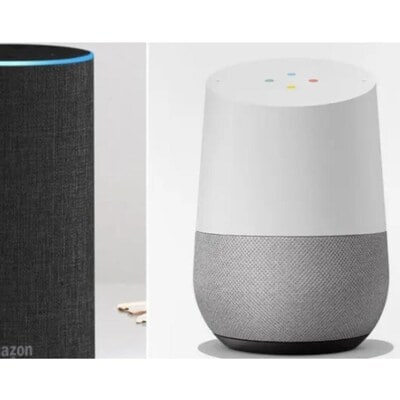According to Statista, smart home adoption is skyrocketing around the world, with the number of users predicted to reach 785.16 million by 2028, ushering in a new era of convenience and connectivity.
But alongside the benefits of these technologies come concerns about data privacy, threatening the sanctity of our private space.
Click here to connect with us on WhatsApp
A recent study by Surfshark’s research hub, Smart Home Privacy Checker, uncovered a disturbing trend: a shocking 1 in 10 smart home apps were found to collect user data for tracking purposes.
Large companies like Amazon and Google stand out as significant collectors, with their apps consuming vast amounts of personal information from millions of users every day.
“In today's world where convenience often trumps privacy, our research uncovers a disturbing trend in smart home device apps, especially from major companies like Amazon and Google. This issue goes beyond just data collection; it invades users' private lives and could lead to data theft, security breaches, and unlimited sharing of personal information,” Goda Sukackaite, privacy adviser at Surfshark, told Firstpost.
Sukackaite advises users to take proactive measures such as managing privacy settings, reviewing app permissions, and staying up to date on data policies governing their smart home devices.
Surfshark's research scrutinized 290 apps on over 400 Internet of Things (IoT) devices, focusing on the most popular apps. Each app underwent a rigorous evaluation across 32 data points, assessing criteria such as user identification, tracking mechanisms, and data collaboration. The findings ranked apps based on the scope and type of data collected.
Tech giants under scrutiny
Amazon's Alexa app emerged as a significant data aggregator, collecting 28 of 32 data points, more than three times the industry average for smart home devices. This included precise location, contact details, and even health-related information, all tightly linked to individual user profiles.
Similarly, Google's suite of smart home devices was found to collect 22 of 32 data points – from addresses and locations to photos, videos, audio recordings and browsing history – exceeding the industry standard in its breadth of data collection.
The cost of convenience
Consumers pay a double price for using smart devices: firstly, financially, and secondly, with their personal data: these apps frequently track users' behavior to personalize advertising and share information with third parties and data brokers.
About a third of these apps focus on collecting detailed data points such as device IDs, email addresses, product interactions, and some even track precise location information.
Outdoor security cameras, especially active collectors, collect an average of 12 data points, 50% more than other devices.
Apps like Deep Sentinel and Lorex contribute greatly to this advanced data collection.
Outdated privacy protocols
The study also uncovered a worrying trend: 12 of the 290 apps analyzed hadn't updated their data-collection methods in over a year, raising questions about compliance with privacy laws and transparency.
In particular, apps controlling children's toys such as MekaMon and Cozmo have been found to collect sensitive data, including precise location information, photos and audio recordings.
As smart home devices become increasingly integrated into our daily lives, users must strike a critical balance between enjoying the convenience and mitigating the privacy risks posed by this evolving technology.

